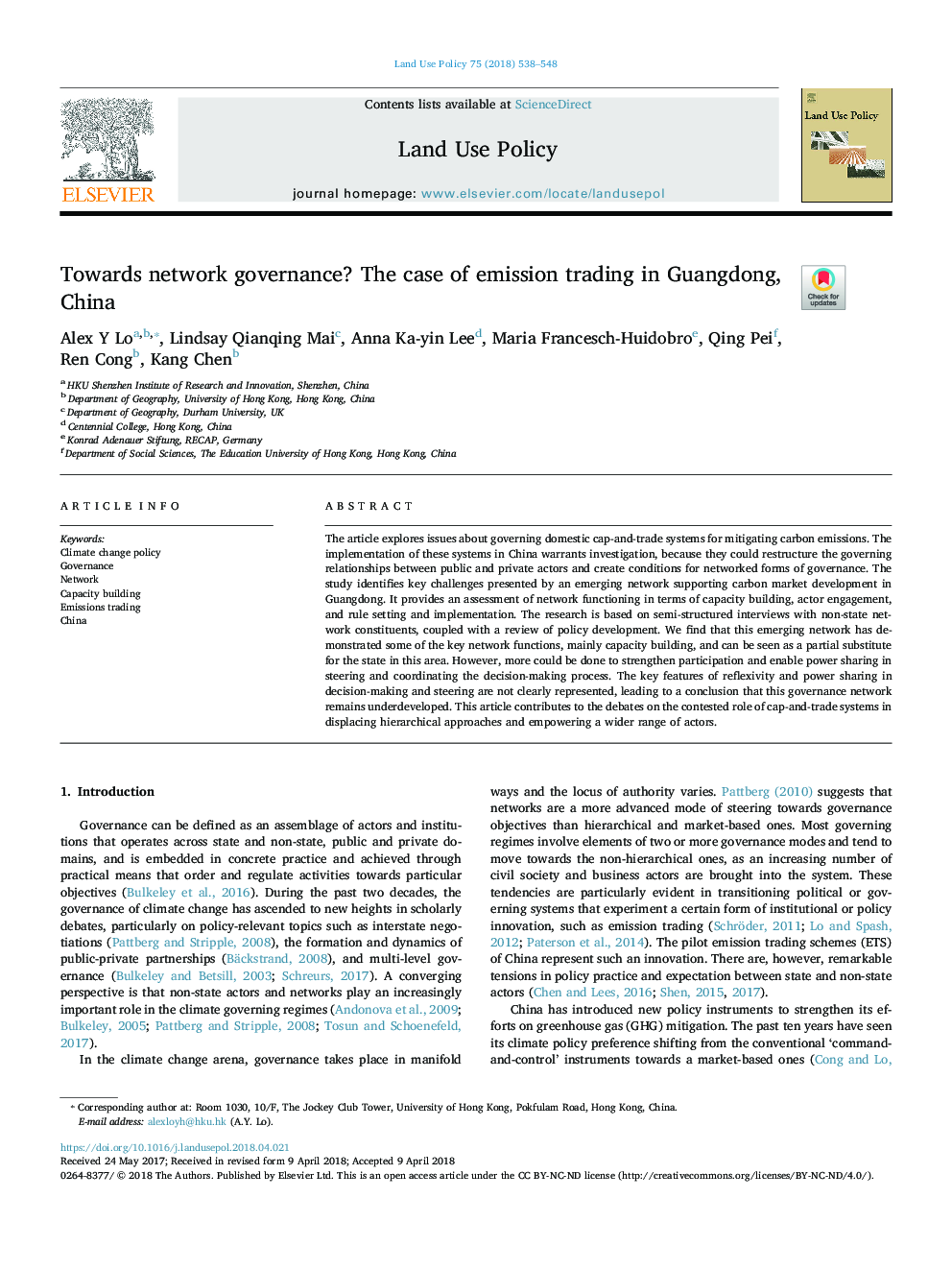| Article ID | Journal | Published Year | Pages | File Type |
|---|---|---|---|---|
| 6546437 | Land Use Policy | 2018 | 11 Pages |
Abstract
The article explores issues about governing domestic cap-and-trade systems for mitigating carbon emissions. The implementation of these systems in China warrants investigation, because they could restructure the governing relationships between public and private actors and create conditions for networked forms of governance. The study identifies key challenges presented by an emerging network supporting carbon market development in Guangdong. It provides an assessment of network functioning in terms of capacity building, actor engagement, and rule setting and implementation. The research is based on semi-structured interviews with non-state network constituents, coupled with a review of policy development. We find that this emerging network has demonstrated some of the key network functions, mainly capacity building, and can be seen as a partial substitute for the state in this area. However, more could be done to strengthen participation and enable power sharing in steering and coordinating the decision-making process. The key features of reflexivity and power sharing in decision-making and steering are not clearly represented, leading to a conclusion that this governance network remains underdeveloped. This article contributes to the debates on the contested role of cap-and-trade systems in displacing hierarchical approaches and empowering a wider range of actors.
Related Topics
Life Sciences
Agricultural and Biological Sciences
Forestry
Authors
Alex Y Lo, Lindsay Qianqing Mai, Anna Ka-yin Lee, Maria Francesch-Huidobro, Qing Pei, Ren Cong, Kang Chen,
